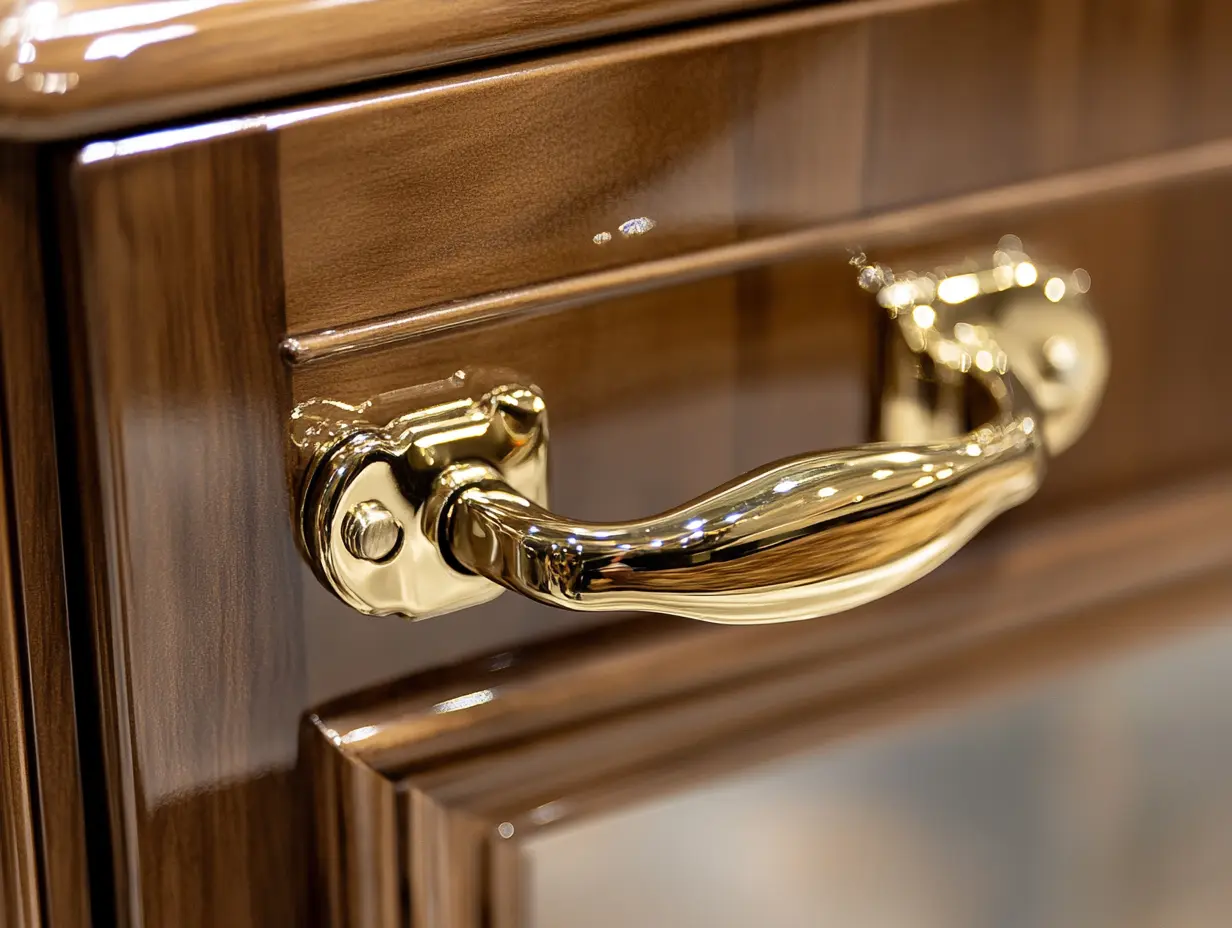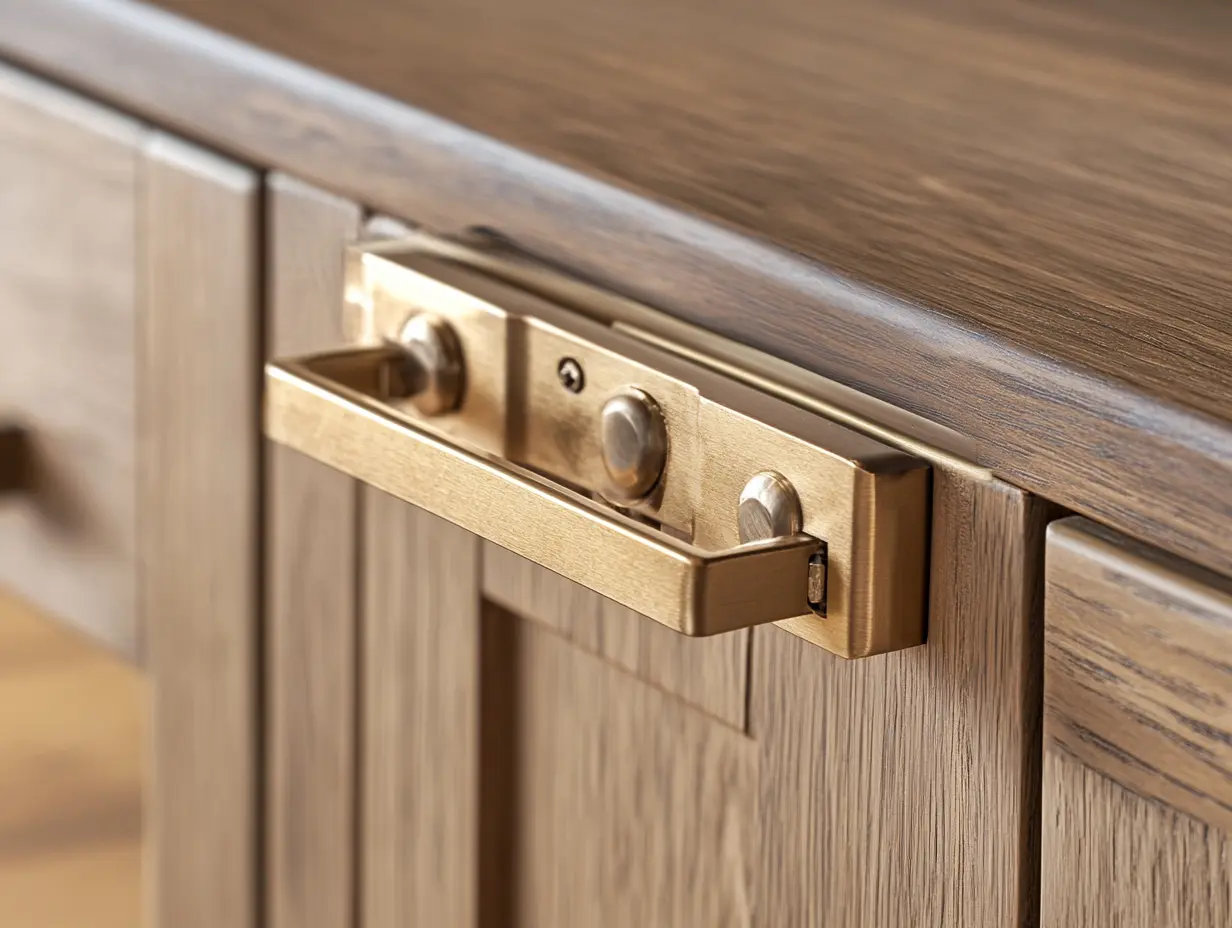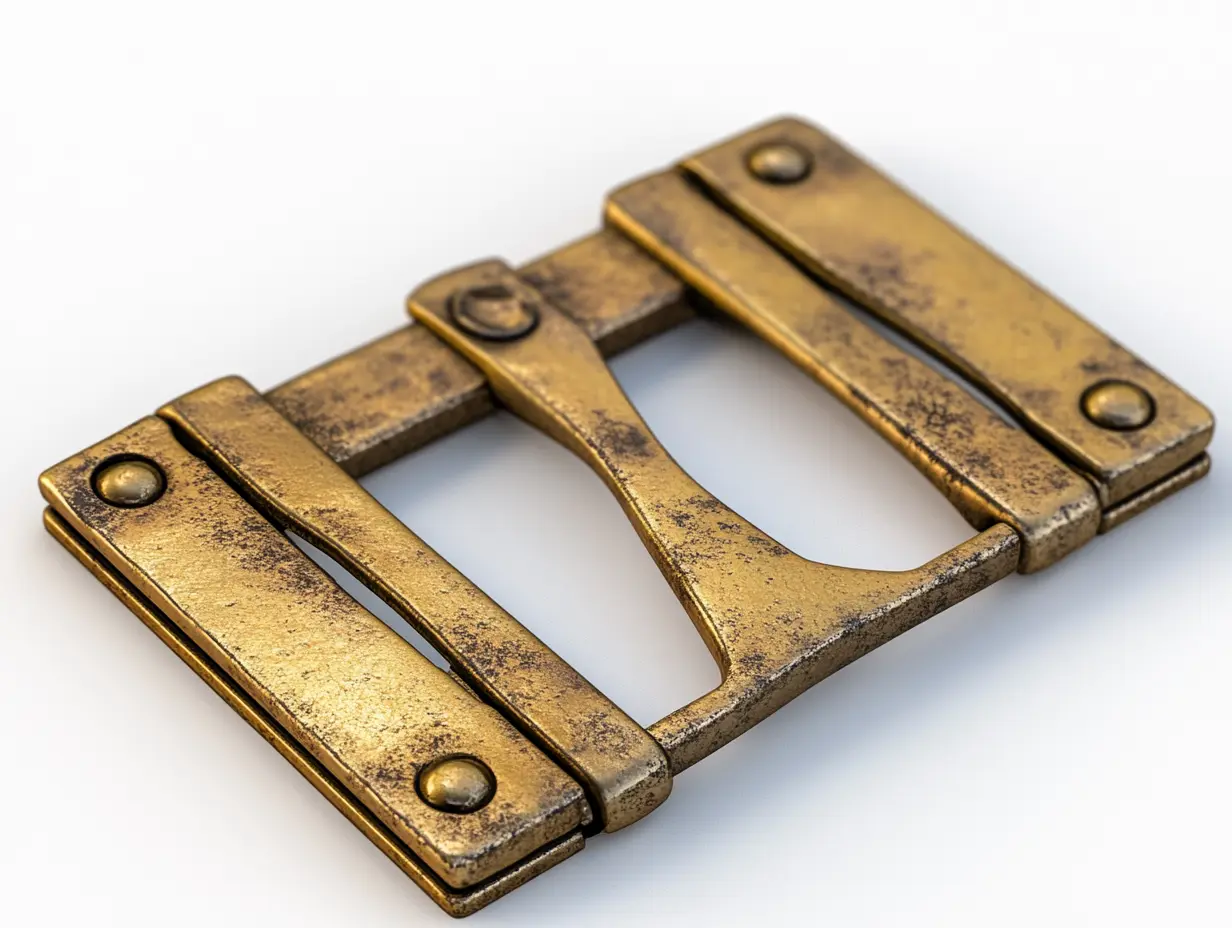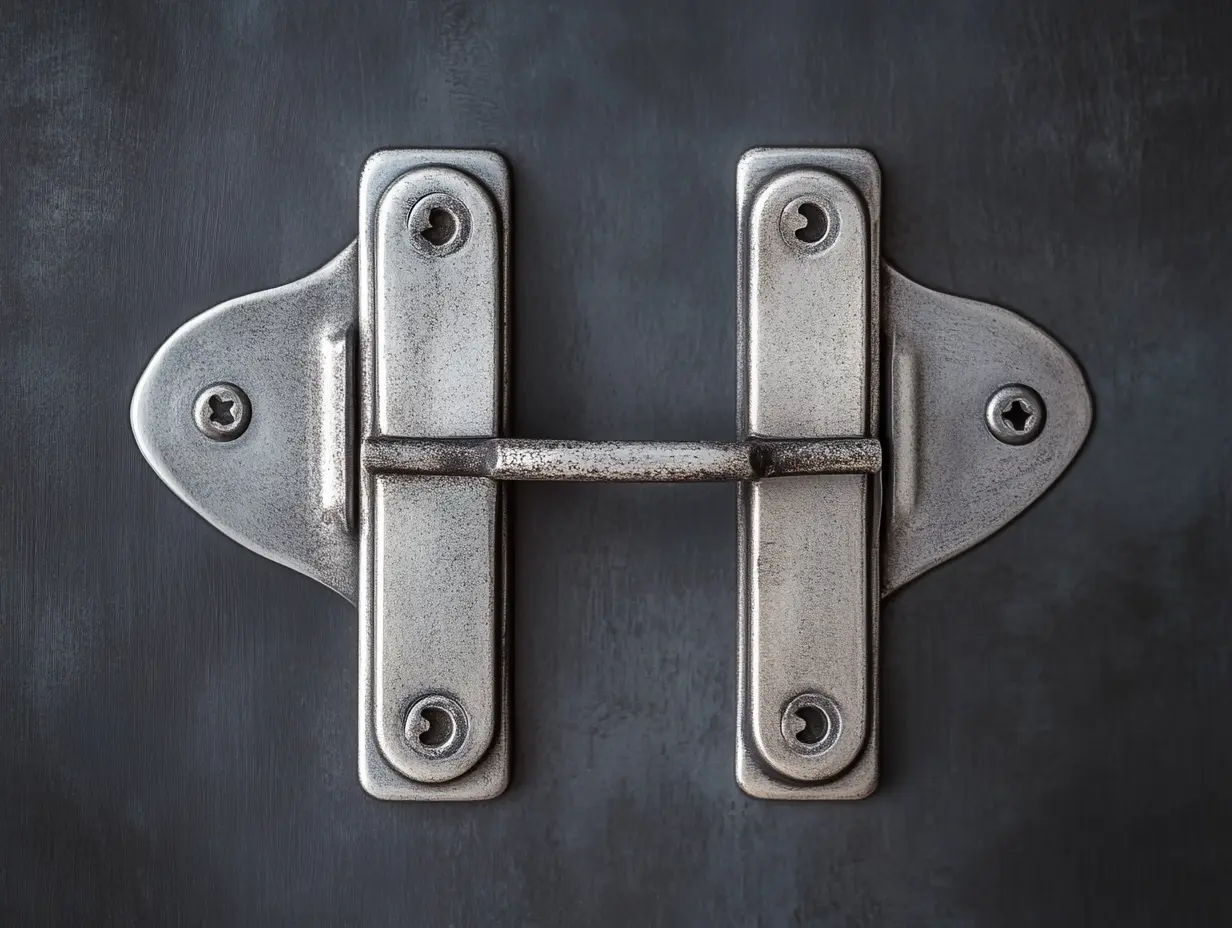Leave Your Message
In the dynamic furniture industry, quality and precision are of paramount importance, especially concerning those elements that hold furniture together—hindges for furniture. As global trade in furniture components involves extended distances, manufacturers and traders must be equipped with the latest information on certifications that assure product reliability and compliance with international standards. This blog will be discussing five major global certifications that are very important for every individual concerned with the making and selling of furniture hinges: what this certification entails for the overall credibility of the business and what doors it can open to new markets.
Guangdong Canhuang Precision Hardware Co., Ltd. recognizes that it is this certification compliance that largely determines the success of its products in the global marketplace. Therefore, we believe in the commitment to quality and innovation to maintain exceeding industry's standards in furniture-hinges design and manufacture. These global certifications will strengthen our reputation as a trusted supplier of precision hardware and will help our partners globally to provide world-class furniture solutions.

The certification has played an important role in the usage quality, safety, and compliance to international standards in the furniture hinge industry. Events such as the International Famous Furniture Fair in Dongguan have showcased many innovations and craftsmanship that increase the demands for certified products. It not only augments the credibility of the manufacturer, but also provides reassurance of the reliability of products the consumer acquires. Recognized certifications can give companies competitive advantage as they maneuver through the transformation of an evolving economic landscape intertwined by dynamic trade policies. With more emphasis being placed on assurance of sustainability and safety, manufacturers with such certifications will be better enabled to survive in uncertain markets. Certifications have become paramount in the furniture hinge trade as an attestation of a greater commitment to standards and innovation in the global furniture industry.

With respect to furniture hinges being traded globally, maintaining certain standards for quality and safety becomes an undeniable necessity. Their existence stems from the numerous requirements that manufacturers are to meet in consideration of consumer demand or regulatory issues in that realm. Among the prime ones are ISO 9001, referring to a quality management system, CE marking with regard to safety necessities within Europe, which qualify both as overriding benchmarks.
Otherwise of concern would be the ANSI/BHMA standard, which substantiates that hinges meet certain parameters with respect to performance and durability testing. Meanwhile, certain approvals grow increasingly popular, like UL and RoHS. Products that attain UL certification must have satisfied some of the strictest safety standards, yet RoHS ensures restrictions on hazardous substances for those consumers who care for that. Such approvals enhance the credibility of any product and ease market entry into the international pool.

With respect to quality management systems, ISO 9001 is a key certification for manufacturers, and this equally applies to the furniture hinge manufacturing community. Under the auspices of ISO 9001 standards, companies can ensure that the products delivered meet customer and regulatory requirements consistently. This certification tremendously adds to efficiency, minimizes waste, and enhances the reliability of products; therefore, it is a significant one for any manufacturing company.
Coinciding with this is the development of newer hinge technologies, which speaks to the fact that innovations are deeply rooted in the design and materials. Recent developments have led to the making of titanium alloy hinges-a huge enhancement in performance and aesthetics of the products. Such technological advancement will not only meet but rather exceed quality management expectations spelled out by certifications like ISO 9001, illustrating the very dynamic interaction between quality standards and complex design innovations in the furniture industry.

Such certifications are very important sometimes to maintain the quality and safety attributes of the tested furniture hinge. Trade in furniture has been rising particularly in online businesses, so recognized certifications like ANSI/BHMA assume greater significance these days. This really adds to the credibility of the product and attracts the buyers' trust in a highly competitive market.
Increased production, especially in China, now demands the upkeep of a high-quality standard for compliance and customer satisfaction. Hence, manufacturers trying to penetrate into new markets can use ANSI/BHMA certification to set themselves apart. With changing trade barriers through free trade agreements, accompanied with a new taxation system, those manufacturers with recognized certifications have more likely chances to overcome hurdles while remaining an appealing choice to international buyers.
It actually is incredibly tough to get and maintain global certifications in the furniture hinge trade- It's a tough market these days. So, besides regulatory standards, any business selling furniture must satisfy customers' expectations from the products. E-commerce added another layer, as was recently demonstrated when the vendor ended up paying huge fines for misleading online advertisement in customs furniture.
Risk of online transaction- false advertising; misrepresentation of products; therefore, it's imperative for manufacturers today not only to acquire relevant certifications but also to maintain transparency with their products' quality. Certification paths are the future for businesses, but they have to keep an eye on the ever-complex scenario of digital trade so that what they offer is, compliant as well as credible to avoid dire consequences.
The BIFMA certification now matters additionally to establishments in the furniture hinge trade. It implies BIFMA enforces the highest of standards for quality, safety, and eco-friendliness with regard to office and institutional furniture. In a market where online transactions are rampant, being able to show a BIFMA certification can be a major differentiating factor, enhancing consumer trust that products can stand the test of defined benchmarks.
With increasing online shopping, incidences of false advertising and misrepresentation of products have really increased. For example, the recent case shows what could happen to a company which did not act according to its promises and faced the consequences of a triple damage judgment. BIFMA certification adds value to the trust that online purchases come along with, offering a better chance for consumers to make informed choices while substantially reducing the possibilities of trickery in the furniture industry.
In the furniture hinge industry, certification and standardization have been changing trends in the recent past. The need for better quality and sustainability in furniture hinges has given rise to new sets of certification programs aimed at monitoring compliance to global levels. The certification assures both the manufacturers and consumers, which in tandem encourages innovative practice in the industry.
As competition in the furniture market grows fierce, manufacturers realize the purpose of these certifications in regard to their credibility. Rather with the new technologies and manufacturing processes, companies are expected to strengthen the credentials that not only measure their performance but also their environmental impact. This, in turn, is an indication of product preference among consumers that strongly favors the highest sustainability criteria, and that is therefore the underlying factor for the forward-looking trend for the future of the furniture hinge industry.
SGS, the world's foremost certification body, plays a pivotal role in providing quality assurance and testing services for the furniture industry. Given the mounting instances of discrepancies between what is offered and what actually gets delivered by furniture manufacturers, including cases where customers have received defective products, nothing could overemphasize the need for thorough testing standards. SGS certification, in this way, serves to demonstrate a manufacturer's commitment to quality, creating avenues where consumers develop a degree of trust, and providing protection against future legal claims.
In a competitive marketplace, especially emphasized by consumer dissatisfaction with cases of fraudulent product claims, obtaining the SGS certification can act as a feather in the cap for a brand, separating it from the rest of its competitors. As furniture trade grows while exhibitions and global events showcase the most recent novelties, it becomes ever more crucial for brands to secure SGS and similar reputable certifications. Not just to raise product credibility but also to dive into the major emerging trends in sustainability and ethical production in the industry.
The most important certification for furniture hinge manufacturers in order to conform with European standards is the CE Marking. Safety, health, and environmental protection requirements set by the European Union must be fulfilled before certifying any product. Recently, there has been an upsurge of exports from China of furniture products, mainly grounded on compliances with various international standards like CE Marking. Manufacturers, thus, have showered on markets that reinforce the value and strength of their brands.
With China coming into the RCEP, furniture selling is expected to hit another plateau with these products going compliant. The surge of global buyers reflected in the double-digit growth rate of exports of wood and wooden products defines the importance of having accepted pieces of certificated evidence. Events like the Malaysia Furniture Fair add to the visibility of these spaces in product certification. They show precisely how compliance and quality certifications lead to buyer trust and market expansion.
Having global standards and certifications for manufacturers in furniture hinge trade is indeed a great opportunity with many advantages, including market credibility and trust. Certifying products affirming conformity to rigorous international standards makes a product attractive for consumers and other manufacturers alike. These are issues pertinent in a global competitive market where quality assurance differentiates one manufacturer from another.
Certifications also assist in ensuring smooth trade relations among countries. For instance, crediting Singapore and Indonesia with mutual acknowledgment of halal certifications is one initiative where certification may provide avenues for trade. By working within recognized standards, certifications are likely to afford manufacturers wider markets and reduced trade barriers, thus significantly improving their export potential.
Certifications ensure product quality, safety, and compliance with international standards, enhancing manufacturers' credibility and reassuring consumers.
CE Marking certifies that products meet the safety, health, and environmental requirements set by the European Union, helping manufacturers tap into lucrative markets.
ANSI/BHMA certification verifies that furniture hinges meet rigorous quality and safety standards, enhancing product credibility and consumer trust.
Possessing recognized certifications provides a competitive edge, allowing manufacturers to differentiate themselves in a complex and evolving economic landscape.
Events such as the International Famous Furniture Fair amplify the visibility of certified products, helping manufacturers gain buyer trust and expand their market reach.
Manufacturers that embrace certifications focusing on sustainability are better positioned to thrive amid increasing market demands for environmentally friendly products.
Compliance with certifications like CE Marking and ANSI/BHMA enhances the competitiveness of furniture exports, particularly as global demand continues to rise.
Without recognized certifications, manufacturers may struggle with compliance and customer satisfaction, making it difficult to navigate international trade barriers effectively.
The increasing focus on certified quality in the furniture hinge trade highlights a broader commitment to excellence and innovation in the global furniture industry.
Manufacturers can use recognized certifications as a point of differentiation, helping them penetrate new markets and remain attractive to international buyers.

